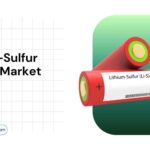On 12 August 2025, Germany’s solar industry is warning that the government’s proposal to withdraw subsidies for new small rooftop photovoltaic systems could severely undermine the country’s renewable energy momentum. For over 25 years, feed-in tariffs offering guaranteed prices for solar electricity have been instrumental in driving adoption and helping Germany emerge as a global leader in renewable energy. Economy Minister Katherina Reiche has argued that small PV systems are now profitable without public support and that operators should contribute more to grid expansion costs. However, industry representatives strongly disagree, saying that the removal of subsidies will not only reduce consumer confidence but also disrupt financing, as many banks rely on the stability of these incentives to approve loans. Surveys suggest that without subsidies, only about 40% of households would proceed with solar installations, threatening to slow the transition toward clean energy.
Fast Facts: Solar Industry in German:
As of 2025, Germany surpassed 104 GW of total solar photovoltaics (PV) capacity.
- 38% on private roofs,
- 29% on company rooftops
- 33% in open-space installations
The German Solar Industry Association (BSW-Solar), representing over 800 member companies, plays a central role in lobbying for stable policies, delivering market research, and supporting industry identity initiatives
From an industry perspective, the timing of the proposal is particularly concerning. Renewable energy companies such as Enpal stress that the sector’s continued growth relies heavily on a stable regulatory framework. Recent years have already brought challenges, with high interest rates, volatile economic conditions, and fluctuating energy markets creating uncertainty. Political voices within the governing coalition have also expressed reservations, pointing out that the coalition agreement aims to empower households as active participants in the energy transition and that policy should focus on storage solutions and long-term energy independence rather than destabilizing the current system.
The solar industry faces significant challenges beyond domestic policy changes. Consisting of guaranteed feed-in tariffs to attract developers crews, the recent switch over to one-time investment grants has put increased risk on plant operators and less return certainty for investors. The higher price comes when International market conditions are creating an extra burden on Europe manufacturers. And manufacture in the region is being hammered by fierce competition from China, which has ratcheted down prices too far for some players to survive. Some German firms, such as Meyer Burger, have relocated manufacturing operations to the United States to take advantage of more attractive subsidies and a more supportive industrial environment. Without protective measures or targeted support, Germany risks relying almost entirely on imported solar modules, weakening its industrial resilience.
Yet a more urgent issue is the wider decline in European solar deployment. With reduced subsidies and moving political motivations, for the first time in over 10 years, annual capacity additions are expected to decline. The slump is especially clear in the residential rooftop segment, for which declining incentives would further dampen demand in Germany. Meanwhile, the costs of supporting the renewable energy transition are rising sharply, with subsidies doubling to an estimated USD 21 billion in 2024, creating fiscal pressures that are pushing policymakers to seek cost-cutting measures.
Despite all these challenges, there are good opportunities for the sector. Commercial and industrial rooftop solar systems are increasing by leaps and bounds with business corporations seeking to cut energy cost as well as improve sustainability levels. A number of businesses have learned that solar systems can pay for themselves within a decade and therefore are worth it even without long-term subsidies. Actually, estimates indicate that by 2030, nearly all German manufacturing companies will have some solar capacity on their land. This trend may be complemented by harnessing unused space like roadsides, rail corridors, parking lots, and industrial parks, which altogether can accommodate more solar capacity than Germany’s 2030 goal without affecting agricultural areas.
The future course of the industry will hinge crucially on policymakers’ ability to balance climate ambition with fiscal prudence. Abrupt and total phasing out of subsidies would halt the transition towards the national aim of 80% renewable electricity by 2030. Phasing down gradually, potentially replacing declining subsidies with incentives for energy storage, grid connect, and local production, would preserve investor confidence without unduly burdening public finances. Expansion of domestic manufacturing capability would not only lower import reliance but also bring in industries and jobs, furthering Germany’s overall strategic and economic interests.
Germany’s solar sector stands at a decisive moment. The right policy choices could sustain momentum, preserve industrial capability, and keep climate goals within reach. Poorly timed or poorly structured changes, however, could reverse decades of progress. Mixing economic realities with the urgency of the energy transition will require nuanced policymaking that reassures consumers, supports businesses, and keeps the nation firmly on the path to a clean energy future.











